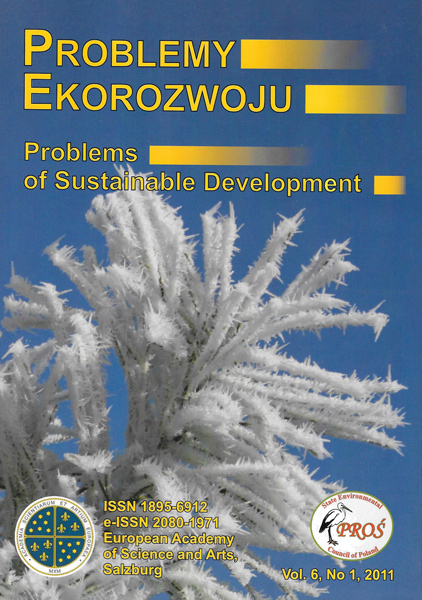Environmentally Sustainable National Income and Other Ways to Improve Information About Growth
Main Article Content
Authors
Abstract
All economic actions are directed to the satisfaction of wants, or in other words: to welfare. Welfare is defined as the satisfaction of wants derived from our dealings with scarce goods. It is a category of personal experience and not measurable in cardinal units. Therefore we have to make do with indicators that are measurable in cardinal units and that are arguably influencing welfare. The cardinal indicator and the ordinal welfare have, of course, to develop in the same direction.
Economic growth is generally defined as increase of national income (NI) (or GDP) as a measure of production. However, according to the subject matter of economics, economic growth can mean nothing other than increase in welfare. Welfare is dependent on more factors than solely production. It is also dependent on employment, income distribution, labour conditions, leisure time and the scarce possible uses of the non-human-made physical surroundings: the environmental functions. These objectives or ends are often in conflict. Therefore welfare can increase with decreasing production.
The narrow minded, theoretical wrong definition of economic growth is especially threatening the current and future availability of environmental functions, the most fundamental scarce and consequently economic goods at the disposal of humanity. These fall outside the market and outside the measurement of NI. Correct information is decisive for the coming into being of the preferences of individuals and institutions and consequently for the decision making process. Therefore it is of the utmost importance to correct the current misleading information. In the paper five relatively simple ways are discussed to correct the wrong information about growth.
The concept of environmental functions is defined as the possible uses of the non-human-made physical surroundings on which humanity is entirely dependent.



